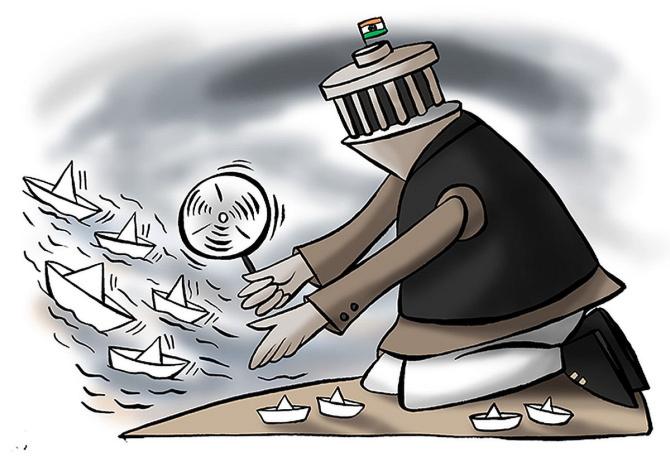India’s trade ties with Israel have only strengthened in the years after 2019.

The total value of trade rose to $10.5 billion on a rolling four-quarter basis in June 2023 from $5.5 billion in the same month in 2019, shows a Business Standard analysis of data from the Centre for Monitoring Indian Economy (CMIE).
A rolling four-quarter number provides a comparable figure across different time periods.
The 93 per cent increase has also seen the trade balance, the difference between imports and exports, become more favourable for India.
India’s exports to Israel was around $1.9 billion more than imports in June 2019.
Exports were $5.7 billion higher than imports by June 2023.
India’s imports from Israel have been largely stagnant over the past decade.
It was $2.5 billion in the four quarters ended in June 2013, which came in $2.4 billion over a similar period ended June 2023.
Trade has largely been driven by exports.
India’s rolling four-quarter exports to Israel rose to $8.1 billion in June 2023 from $3.7 billion in June 2013.
Much of the rise has happened in the period after the Covid-19 pandemic.
It was stagnant at 2013-levels of $3.7 billion in June 2019.
The composition of exports shows that not all segments have grown equally.
The value of manufactured goods exported to Israel is up 30.5 per cent to $2.6 billion as of June 2023, on a rolling four-quarter basis.
The share of agricultural and allied products as well as ores and minerals remain negligible.
Petroleum and crude exports have surged.
India’s petroleum and crude products exports rose 245 per cent to $5.3 billion in June 2023.
The segment accounted for 65.2 per cent of the total exports to Israel as of June 2023.
It was 41.8 per cent in June 2019.
Key segments with the exposure to Israel include gems and jewellery ($1.2 billion in exports), and engineering goods ($455 million in exports), based on trade for the four quarters ended June 2023.
India also exported $127 million worth of textiles to Israel during this period.
Drugs, pharmaceuticals, and fine chemicals accounted for $96.8 million in exports while overall chemical and related product exports were worth $282 million.
India and Israel have been long negotiating a free trade agreement (FTA).
The first round of discussions was held in 2010.
There have been at least eight rounds in the subsequent years.
The trade agreement is not under consideration as of now.
People aware of the matter said the discussions on a trade deal did not make progress since Israel was not willing to offer greater access, especially for the service sector.
India was mainly pushing for greater movement of information technology (IT) professionals.
Goods were not the main area of focus since the tariffs in the West Asian nations are anyway not too steep, which meant that there wouldn’t have been a massive gain for New Delhi from the agreement.
According to Ajay Srivastava, the founder of think tank Global Trade Research Initiative (GTRI), Indian exporters may face higher risk premiums and shipping costs, which may reduce their profits but will not impact trade volumes unless war escalates.
“The war may lead to higher insurance premiums and shipping costs.
"India’s ECGC may charge higher risk premiums from Indian firms exporting to Israel.
"Trade may be seriously impacted if operations at the three largest ports of Israel, Haifa, Ashdod, and Eilat are disrupted.
"India’s merchandise trade with Israel happens mostly through Eilat port, located on the Red Sea.
"Fortunately, so far there is no report of port disruption,” Srivastava said in a report, adding that the real impact would depend on the duration and intensity of the war.
According to GTRI estimates, the India-Israel bilateral services trade is estimated to be around $1.3 billion.
The major services traded between the two countries include IT.
India is Israel’s seventh largest trading partner globally.
It is ranked 30th among India’s trade partners, accounting for close to 1 per cent of trade even after the recent rise.












 © 2025
© 2025